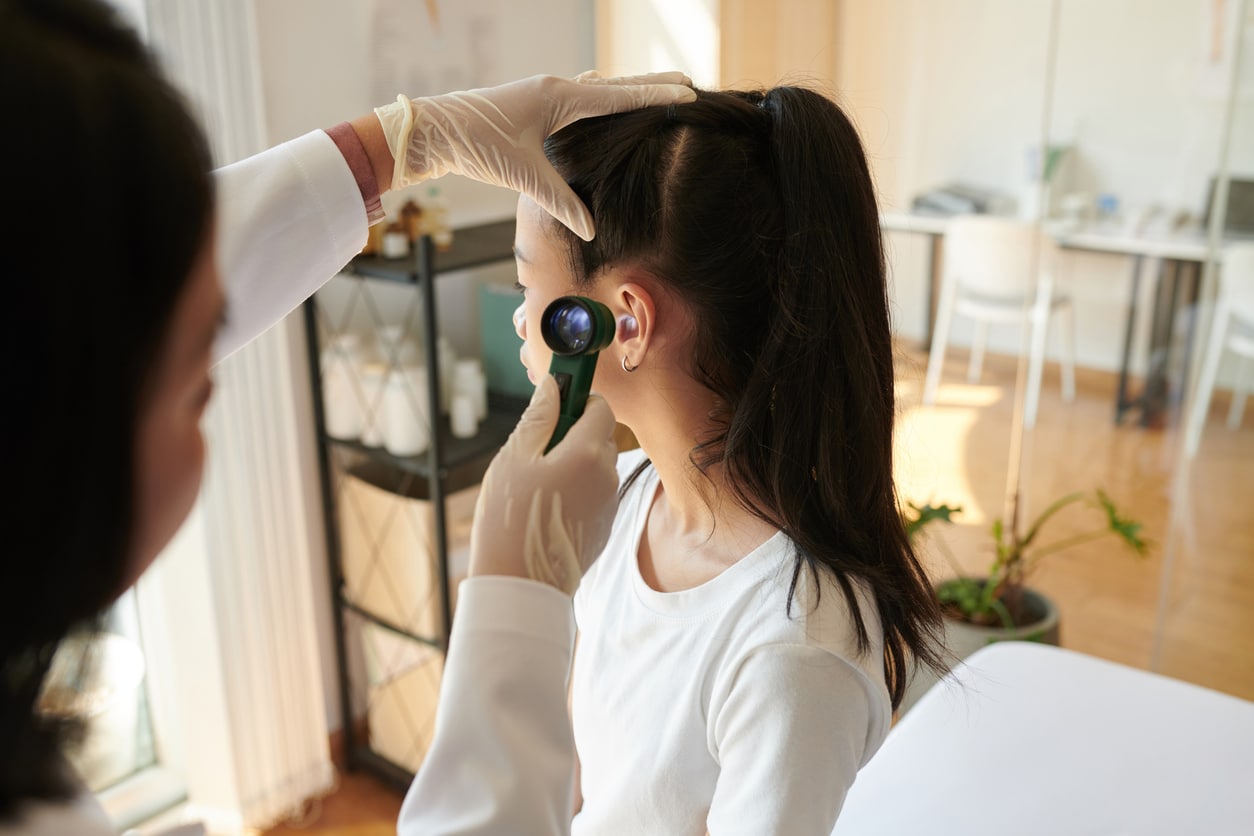While anyone can develop an ear infection, they are more common in children than adults. This is because children have smaller Eustachian tubes that are still developing and are more likely to experience swelling and fluid blockages.
Though the occasional ear infection is likely nothing to worry about and will clear up on its own, chronic infections can be painful and difficult to deal with for children and parents alike. Thankfully, there are steps you can take to reduce your child’s risk of infection.
Ways to Prevent Ear Infections

While it may not always be possible to prevent ear infections, taking these steps should help reduce your child’s risk:
- Don’t smoke or allow anyone else to smoke around your child.
- If you bottle feed, make sure to feed your baby at an upright angle to prevent fluid from flowing into their Eustachian tubes.
- Practice good hygiene for you and your child. Wash your hands and your child’s hands regularly with soap and warm water.
- Dry your child’s ears after swimming or being in the water to avoid a type of ear infection known as swimmer’s ear.
- Avoid exposure to sick people whenever possible.
- Keep an eye out for snoring or mouth breathing. This may be a sign your child has enlarged adenoids, which could play a role in causing ear infections.
- Make sure you and your child are up-to-date on your vaccinations. Research has shown that that vaccines that help prevent pneumonia and influenza have been shown to reduce the risk of ear infections.
- Consider ear tubes if infections are frequently recurring
Does My Child Have an Ear Infection?
Even when taking precautions, ear infections can still happen. Your child may be more at risk if:
- They spend a lot of time around other children (such as siblings or are in school/daycare)
- Had a recent upper respiratory tract infection
- Have allergies
Common symptoms of an ear infection include ear pain, fever and drainage from the ear. Sometimes, when your child is very young and nonverbal, it can be harder to know if they are having symptoms. You may notice them:
- Pulling or tugging at their ear
- Trouble sleeping
- Acting fussier than usual
- Trouble hearing when they’re at home or out
If you suspect an ear infection, make an appointment with your child’s medical provider. They will examine the ear and determine if any treatment is needed.